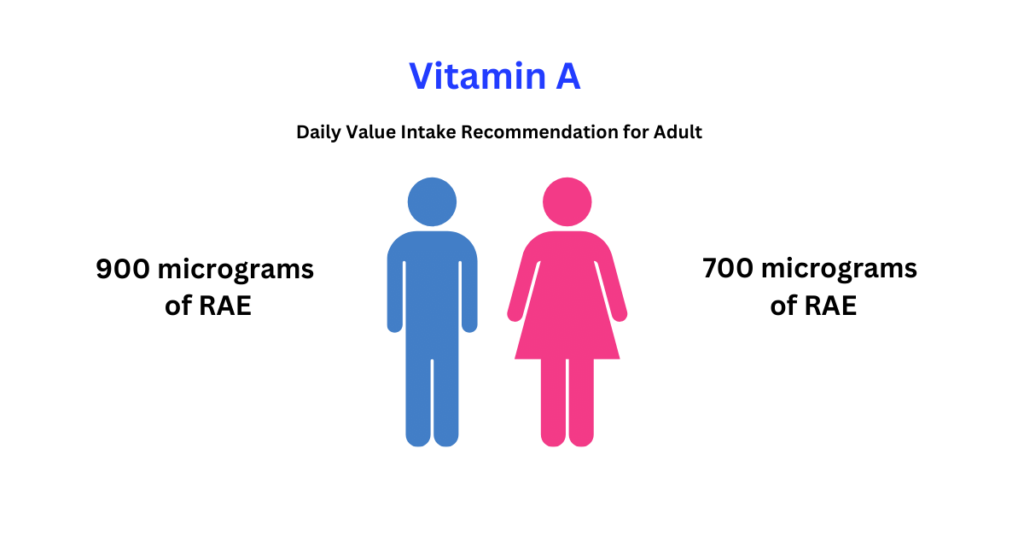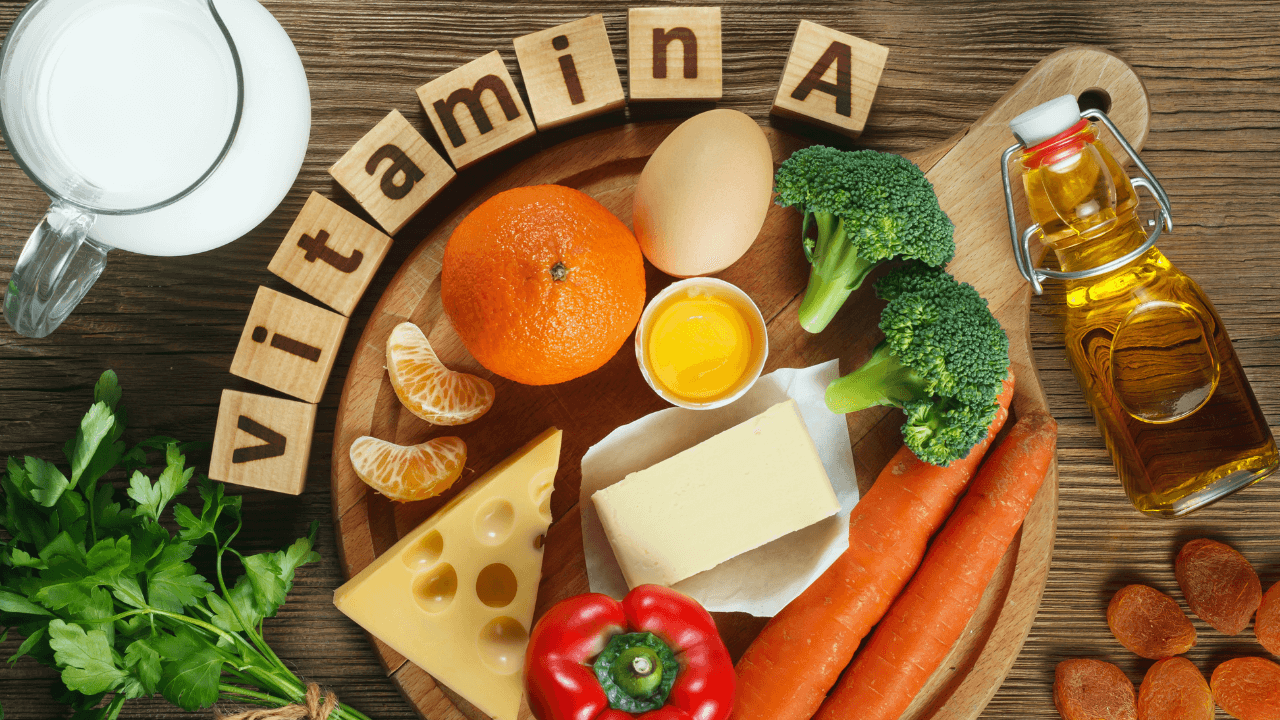Vitamin A or retinol, a crucial nutrient for maintaining healthy skin, vision, and immune function, is essential to our overall well-being. This article explores the significance of Vitamin A, its dietary sources, the importance of supplementation, and the potential risks of deficiency. Whether you’re a health enthusiast or seeking to improve your diet, understanding the impact of retinol is key to optimizing your health.
The Importance of Recommended Daily Intake of Vitamin A:
Vitamin A plays a crucial role in maintaining several vital functions in the body, making this nutrient’s recommended daily intake (RDI) particularly important. The RDI for retinol varies based on age, gender, and other factors such as pregnancy and lactation. Adhering to these recommendations ensures the optimal functioning of several key systems in the body.
1. Vision Health:
Vitamin A is famously known for its role in maintaining healthy vision. It is a precursor that transforms into rhodopsin, an eye protein that allows for vision in low-light conditions. Meeting the daily retinol requirements helps prevent night blindness and preserves overall eye health.
2. Immune Function:
This vitamin is also essential for a robust immune system. It plays a pivotal role in the growth and function of white blood cells, which are crucial for fighting off infections. Adequate intake of retinol ensures that the body’s defenses are well-equipped to tackle pathogens.
3. Skin and Mucous Membranes:
Retinol contributes significantly to the health of the skin and mucous membranes. It assists in producing and repairing skin cells, helping to maintain a barrier against bacteria and viruses. This, in turn, promotes healthy skin and reduces the risk of skin infections.
4. Growth and Development:
Particularly important in children, Vitamin A is essential for normal growth and development. It favors cell differentiation, a process that is fundamental in the formation and maintenance of various organs, including the heart, lungs, and kidneys.
5. Reproductive Health:
Both men and women benefit from retinol in terms of reproductive health. It plays a role in the normal formation and maintenance of the reproductive organs.
6. Antioxidant Properties:
As an antioxidant, retinol helps combat free radicals in the body, which can contribute to chronic diseases and aging.

Food Sources: Rich in Vitamin A
Incorporating Vitamin A foods into your diet is a straightforward way to meet your daily requirements for this vital nutrient. Here’s a list of foods that are excellent sources of retinol, along with their respective serving sizes:
- Sweet potatoes: Approximately 150 grams
- Carrots: Approximately 130 grams
- Spinach: Approximately 180 grams
- Kale: Approximately 100 grams
- Red bell peppers: Approximately 120 grams
- Apricots: Approximately 170 grams
- Mangoes: Approximately 1.5 cups
- Papaya: Approximately 1.5 cups
- Cod liver oil: Approximately 1 tablespoon
- Beef liver: Approximately 85 grams
These foods containing Vitamin A are delicious and a great way to ensure you’re getting enough of this essential nutrient.
Deficiencies and Supplementation
Vitamin A deficiency can have serious health implications, especially in areas with limited food access. Symptoms of this deficiency include night blindness, dry eyes, and impaired immune function. While Vitamin A supplements can be beneficial in addressing these deficiencies, it’s crucial to consult with a healthcare professional, as excessive intake can be harmful. Understanding the balance between dietary intake and retinol supplements is essential for optimal health.
Interactions and Absorption
Vitamin A is best absorbed as a fat-soluble vitamin when consumed with dietary fats. This makes the inclusion of healthy fats in your diet an important factor for maximizing absorption. Additionally, synergistic interactions with Vitamin E can enhance the antioxidant properties of retinol, contributing to overall health. However, it’s important to be aware of how alcohol and certain medications, particularly those for cholesterol management, can interfere with the absorption and utilization of Vitamin A. Consulting with healthcare providers about these interactions is advisable.
You might be interested in reading: Unlocking the Health Benefits of Vitamin E: Sources and Insights
Conclusion: Embracing the Power of Vitamin A
Retinol is pivotal in maintaining health and preventing deficiencies. By incorporating a variety of Vitamin A-rich foods into your diet and understanding the need for supplements when necessary, you can ensure optimal levels of this essential nutrient. Stay informed and consult healthcare professionals as needed to harness the full benefits of Vitamin A for your health and well-being.







